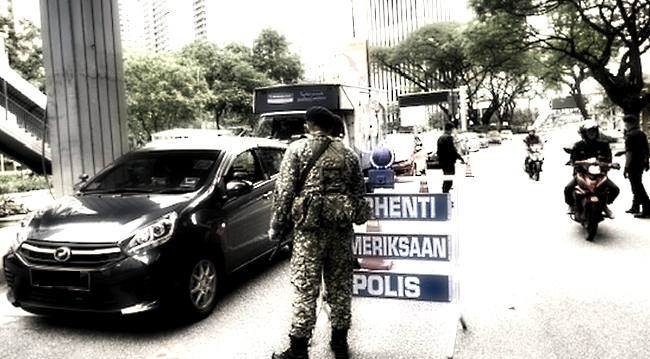Sin Chew Daily
On Monday prime minister Tan Sri Muhyiddin Yassin said only when a certain percentage of the population is immunized will interstate travel be allowed.
While such a statement looks straightforward, it nevertheless offers some room for possible reversal.
According to the WHO, herd immunity will be achieved when 80% of the population is immune either through vaccination or immunity developed through previous infection. And as such, the prime minister's remark has excessively worried the corporate sector, but hopefully there will be a policy reversal pretty soon!
As of yesterday, a total of 32,277 Malaysians had been inoculated against the coronavirus, and if we add the total number of recoveries, we will have more than 308,000 people with immunity.
Currently only 0.94% of the population is immune, and the percentage will drop to 0.79% if we include also the migrant workers.
If we want to have 80% of the population immunized, we will need to have 26.16 million immune population to achieve that herd immunity.
Yes, we'll achieve that some day, but this is going to take quite some time. Based on the timetable of our national immunization program, 80% of the population will be vaccinated only next February!
If indeed this is the government's goal, then what about the promise that the government will take care of both the people's "lives and livelihoods", along with revitalizing the travel industry, vaccine passport, and a comprehensive economic recovery plan to be unveiled later this month?
The corporate sector will take the brunt of interstate travel ban, as evidenced by the experiences in both China and the US.

The Business Survival Group formed by 262 business associations representing some 950,000 companies in the country, have urged the government to allow Malaysians to travel across state and district borders, and enforce strict lockdown measures only in very badly hit areas.
To be honest, the MCO and CMCO now being implemented have been covering too extensive areas, making it hard to take care of both "lives and livelihoods".
The Business Survival Group has expressed shock over what health DG Noor Hisham has said, that Malaysians will only be allowed to travel between states and districts once 70% to 80% of the country's population has completed the immunization program.
Other than a handful of industries unaffected by the pandemic, many companies will have to wind up if the government sets the bar too high, while others will trim their workforce, sending millions out of work.
Senior minister (finance and economics) Azmin Ali says the government will decide whether to extend the MCO for a state based on scientific data, which is great. But, is that scientific data an unrealistically high standard or one that will take into consideration the survival of local companies?
We feel that perhaps the government should consider shrinking the lockdown areas to just a subdistrict or neighborhood level based on the percentage of population infected or new infection clusters detected.
Minister Khairy Jamaluddin says only 1.62 million people or 6.5% of the country's total population have registered for vaccination through MySejahtera app.
Look at it this way, with only 0.1% of the population inoculated barely ten days since the first jab was administered here, we have more than 50 times as many people who have registered for vaccination!
So, things are not that bad after all, but the question is, how long can local companies hold on to?
ADVERTISEMENT
ADVERTISEMENT


































